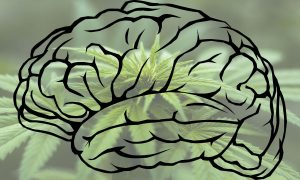
Marijuana and memory
Everyone forgets things. Where are your keys, the name of a former teacher, an appointment, it’s just a fact of life. But when does it become a problem and does marijuana play a role?
Memory and other thinking problems can have many possible causes, including depression, an infection, or side effects of medications. Sometimes the problem can be treated and perception improves. Other times, the problem is a brain disorder, such as Alzheimer’s disease, that cannot be reversed.
It’s normal to forget things occasionally as you get older, but memory problems make it harder to find everyday things like driving, making phone calls, and finding your way home. Forgetfulness can result from stress, depression, lack of sleep or thyroid problems. Other causes are side effects of certain medications, an unhealthy diet or a lack of fluid in the body (dehydration). Treating these underlying causes can help resolve your memory problems.
It’s clear that alcohol causes memory problems, but what about marijuana? The idea of a regular cannabis user is laid-back, forgetful, and laid-back. Is that a stereotype or is there a fact behind the picture?
There is no question that marijuana can cause short-term problems with thinking, working memory, executive function, and psychomotor function (physical actions that require conscious thought, such as driving a car or playing a musical instrument). This is because marijuana’s main psychoactive chemical, THC, produces its effects by binding to receptors in brain regions important for memory formation, including the hippocampus, amygdala, and cerebral cortex. THC is what gets you high.
Impaired memory from marijuana use occurs because THC changes the way the hippocampus, an area of the brain responsible for memory formation, processes information. Chronic THC exposure can accelerate age-related loss of hippocampal neurons. Most of the research has focused on animals and more needs to be done for researchers and scientists to get a clear picture.
RELATED: Dementia and Marijuana
Long-term cannabis users can experience brain fog, decreased motivation, learning difficulties, and difficulties with attention span. Symptoms are usually reversible, however, using products higher in THC may increase the risk of developing cognitive symptoms.
In particular, alcohol interferes with the ability to form new long-term memories; It causes less interference with the retrieval of previously built long-term memories or the ability to keep new information active in short-term memory for a few seconds or longer. Alcohol can also cause blackout, resulting in temporary memory loss.
 Photos: GDJ via Pixabay; Herbal Hemp via Pixabay
Photos: GDJ via Pixabay; Herbal Hemp via Pixabay
Alcohol-related dementia is present (ARBD). When a person has alcohol-related dementia, they will struggle with everyday tasks due to brain damage caused by heavy physical activity over many years.
RELATED: Why Generation Z is turning off the beer and turning to marijuana
Research suggests that the so-called cannabinoid-1 receptors in the brain return to normal after two days without cannabis and return to normal functioning within four weeks of stopping the drug.
If you have something important that you need to be 100% committed to, cut back so you can be at your best.

Post a comment: